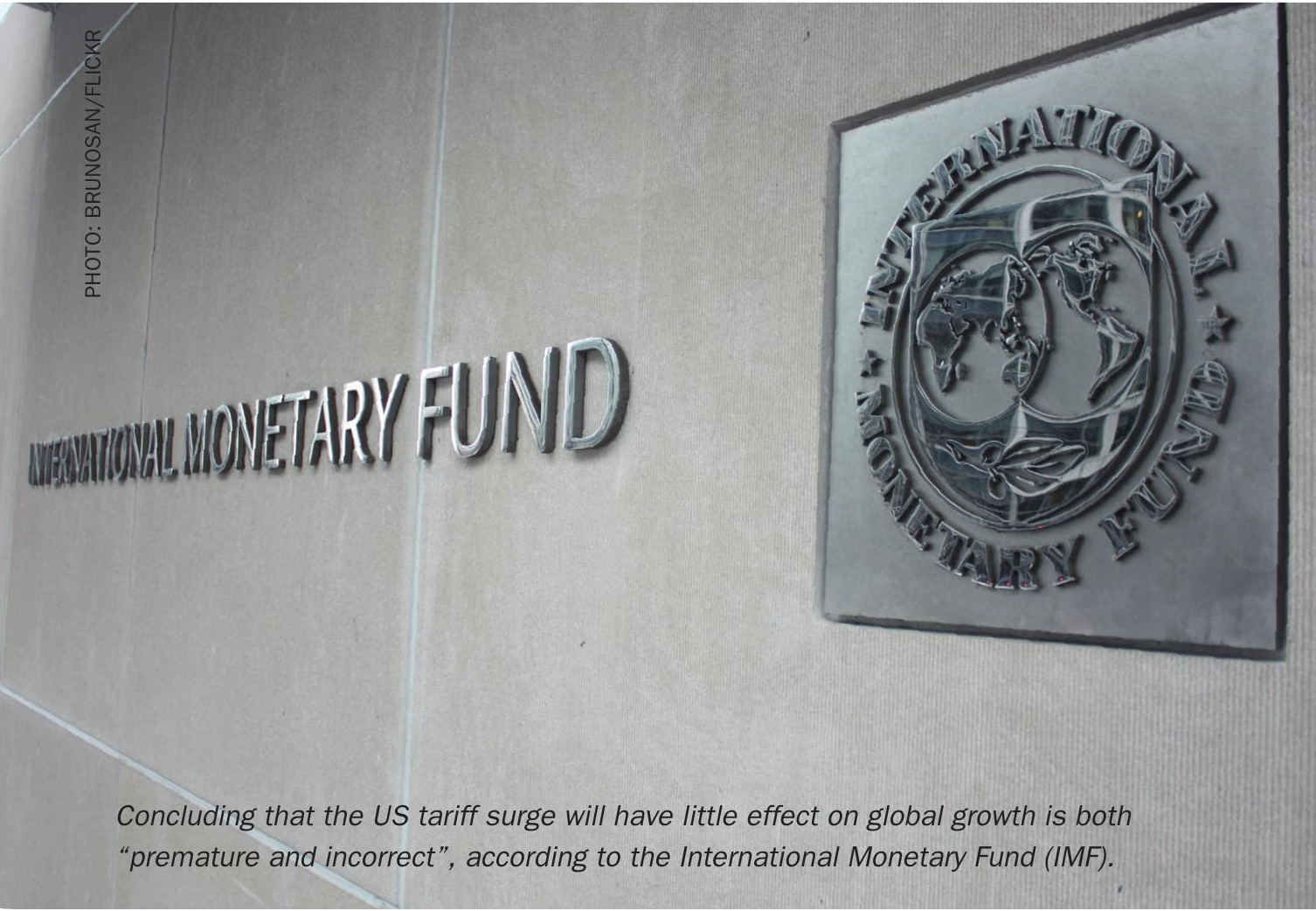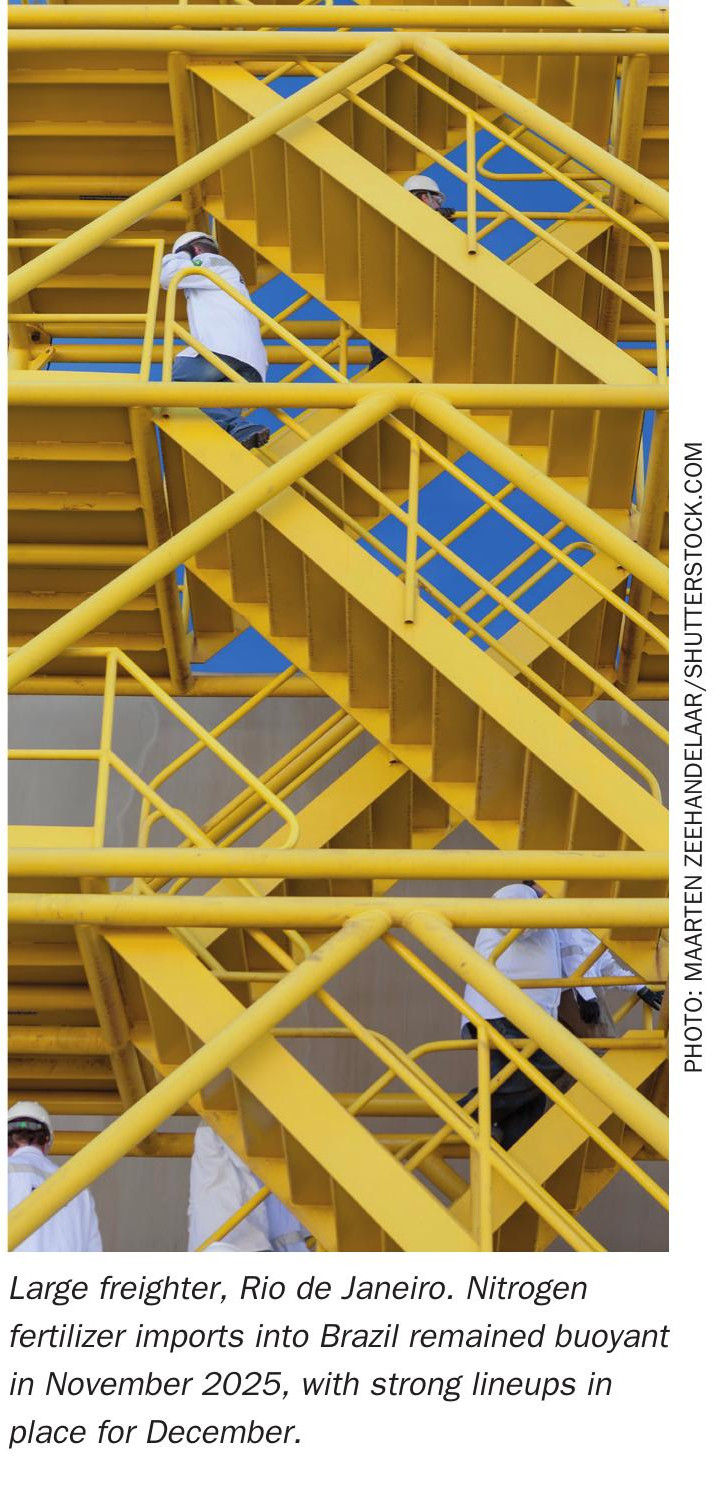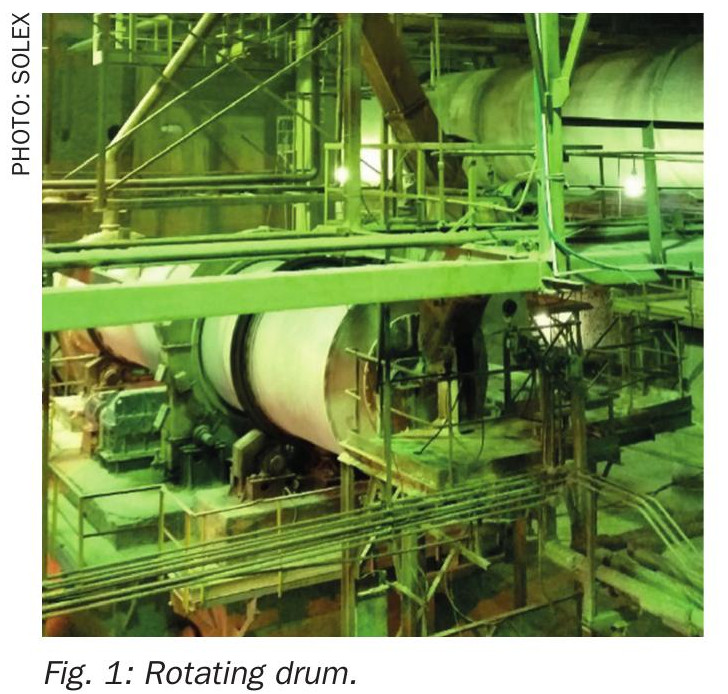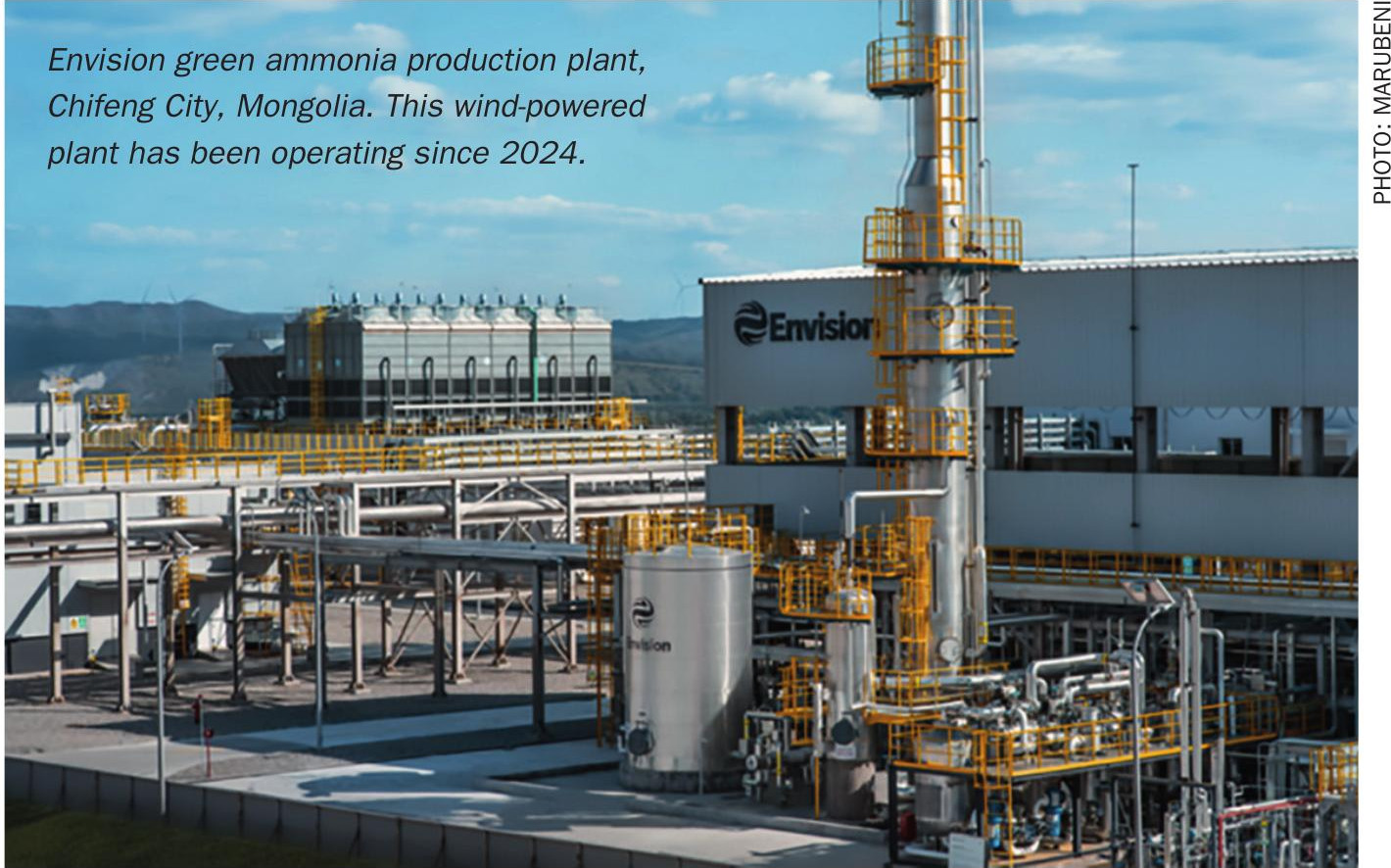Fertilizer International 512 Jan-Feb 2023

31 January 2023
Turkey’s fertilizer market
COUNTRY PROFILE
Turkey’s fertilizer market
Turkey’s thriving agricultural sector has created a large and dynamic fertilizer market at the crossroads of Europe and Asia, explains Hakan Goral, the CEO of Tekfen Agri Industry Group.
Turkish fertilizer production has roots dating back to the late 1950s when the government invested in and owned the industry. The private sector first entered the market in 1970s – and again in the early 2000s – with the privatisation sales of state-owned plants.
Currently, Turkey has seven major domestic fertilizer producers (Figure 1). The country’s total fertilizer production capacity is around 7.5 million tonnes per annum. The production of phosphate and nitrate fertilizers predominates with capacities of around 3.7 million t/a and 2.3 million t/a, respectively.

Although Turkey’s apparent fertilizer production is high, most of its manufacturing raw materials need to be imported, as domestic sources are either limited or not available. Natural gas, for example, is imported, while phosphate rock production is very limited. There are also no potash mines in Turkey.
Only three domestic plants in Turkey have a production capability for ammonia, with one each dedicated to nitrates, urea and phosphates production. These have a combined operating capacity of 830,000 t/a. Urea production is currently limited to one plant with a capacity of 560,000 t/a, although a second under-construction plant is expected to start production in 2023. Phosphoric acid is also a rare commodity in Turkey. Total production capacity of 510,000 t/a is divided across three plants, only one of which has its own dedicated phosphate mine.
Toros Agri, a subsidiary of Tekfen Holding, is the country’s largest fertilizer producer with a total production capacity of two million t/a. This is divided between manufacturing operations at three plants located in Ceyhan, Mersin and Samsun. These produce ammonium nitrate (AN), calcium ammonium nitrate (CAN), diammonium phosphate (DAP) and compound NPKs. In a landmark move, the company introduced its first organomineral fertilizers to the market in 2017.
Toros Agri’s strategic aim is to be an exclusive source for every plant nutrient that Turkish and international farmers might need. Its specialty product line includes water-soluble and micronutrient fertilizers, in addition to its conventional commodity fertilizer range. The company imports from abroad products that it does not produce domestically itself.
Toros made a significant revamp investment in its Samsun plant between 2012 and 2015. As a consequence, Samsun now has the country’s highest sulphuric acid and phosphoric acid production capacities of 726,000 t/a and 214,000 t/a, respectively.
In addition to acid-based compound NPK producers, several blending plants in Turkey provide an estimated total of 1.5 million t/a of NPK production capacity. Since the country is import-reliant for most of its raw materials, the decision on whether to manufacture NPKs in-house is taken after comparing the relative costs of procurement vs production.
Turkey’s annual fertilizer consumption has ranged between 5.3-7.1 million tonnes in the last 10 years. This is equivalent to around 2.1-2.9 million tonnes of nutrient use.
In 2016, the Turkish government banned the sales of ammonium nitrate fertilizer (AN33) due to its use in illegal explosives. This nitrate ban created two major changes in the Turkish market. Firstly, urea and ammonium sulphate (AS) demand skyrocketed to compensate for the loss of AN33. This affected import demand –Turkey being a net importer for both AS and urea. Secondly, Turkish nitrate producers, who previously enjoyed a lucrative domestic market for many years, sought out new markets for their products to keep their operations running.
Toros Agri emerged as the clear winner in this new market shift by increasing its international sales. The company became the Turkish fertilizer sector’s export champion for five consecutive years between 2017 and 2021. As well as making nitrate fertilizer deliveries overseas, Toros Agri exported significant amounts of phosphate fertilizers manufactured at its Samsun plant.
Due to these recent market developments, urea has now established itself as Turkey’s main nitrogen fertilizer with average annual consumption of two million tonnes during the last five years. Turkey’s farmers also prefer DAP over monoammonium phosphate (MAP) while 20-20-0 is the most used NPK fertilizer. Combined, around 1.8 million tonnes of these two products are consumed domestically on average each year.
In terms of the balance between installed domestic capacity and fertilizer demand, Turkey is self-sufficient in NPKs with excess capacity, whereas it needs to import phosphate, urea and AS to meet its needs.
Turkish growers generally behave conservatively when selecting fertilizer products. Consequently, around 10 seller codes (SKUs) make up 95 percent of the total mineral fertilizer market. The preference for these fertilizer types and traditional buying behaviour have tended to act as a disincentive for research and development by Turkish producers and a barrier to investment in new fertilizer products. Toros has, nonetheless, pioneered Turkish fertilizer innovation by establishing the first certified R&D centre for plant nutrition in 2017.
Turkey’s financial support for agricultural producers, as a share of gross farm receipts, is slightly above the OECD average. This is mostly in the form of market price support for products. The remaining sector support typically comprises of premium payments to specific agricultural commodity producers, area-based payments to farmers in the form of crop insurance, and farm payments to defray the cost of diesel and fertilizers. Fertilizer subsidies reached the equivalent of $11.2-24.6/ha (TRY21-46/decare in local currency) when fertilizers prices reached record high levels in 2022.
Organomineral fertilizers have been developed as a new product category in the last five years to address the general lack of organic matter in Turkish soils. These products incorporate organic material within mineral fertilizers. Studies have shown that organomineral fertilizers provide major yield increases and nutrient use efficiency improvements. Only Toros Agri uses compost as an organic source in the production of organomineral fertilizers. The company sources compost from its own biogas plants. These convert animal and agricultural wastes into biogas for electricity generation and produce organic material for composting.
Fertilizer tracking: a safe yet costly system
Turkey’s Agriculture and Forestry Ministry signed a deal for a fertilizer tracking system for all fertilizers, especially for strictly controlled CAN fertilizers, in July 2017. In this system, all fertilizer bags have a QR code that can be traced back through the supply chain from farmer to dealer to producer. As well as QR codes, all nitrate fertilizers (and eventually all nitrogen fertilizers) also have a DNA marker to identify their origin. These markers are explosion-resistant and can therefore identify the origin of explosives even in the worst scenarios.
The first DNA-tagged products placed on the market were loaded from Toros Agri’s Mersin plant in January 2018. Fertilizer tracking was subsequently completely integrated into other systems by March 2019. Since then, the tracking system has worked as planned, although it has introduced fertilizer sector costs which have then been passed on to farmers. For the 3.7 million tonnes of nitrogen fertilizers and 2.6 million tonnes of phosphate fertilizers sold in the market in 2021, for example, the total cost of fertilizer tracking system – paid for by farmers – was more than $35 million.
Currency shocks: a new normal in Turkish economy
With the country’s current account deficit at elevated levels, the Turkish economy has remained fragile over the last decade. How to finance this deficit is now being questioned and become a hot topic for public debate. The Turkish people have survived two currency shocks in the last five years (Figure 2). Both shocks were particularly badly timed for farmers.
The first currency shock came in the summer of 2018. Following escalating tensions with US, the Turkish lira (TRY) lost its value against other currencies and the USD/TRY exchange rate, for example, increased to 6.88 from 4.88 in just 10 days. After this initial spike, currency levels hovered between 5-6 until the Covid-19 shutdowns in 2020.
The second shock started in the last four months of 2021 when the central bank of Turkey started to lower interest rates to stimulate the economy. As a consequence, the USD/TRY rate doubled from 8.2 to 16.4. The government subsequently intervened with several measures to control currency rates. Since then, the USD/TRY rate has followed a more stable path in 2022, although it has still been on an upwards trajectory – increasing from 13.3 to 18.7 over the course of the year.

Both shocks have one common factor that badly affected the agriculture sector: they both started after harvest time when most farmers sell-off their products. The second shock also had a major impact on fertilizer affordability for Turkish farmers as it coincided with a severe global fertilizer crisis – arguably the worst history – and record fertilizer prices. In the end, the Turkish agriculture sector survived this very harsh period of turmoil. After the good harvest and prices of 2022, some have forgotten the past rough watersand have increasing hope for the upcoming season.
Export ban: are we allowed?
The Turkish government gradually introduced an export ban on fertilizers in September-October 2021 and subsequently issued export permits for limited fertilizer formulations until May 2022. During May-September 2022, fertilizer companies were allowed to export up to 50 percent of their capacity. Then, from September 2022 to January 2023, only nitrate exports were allowed.
Export permissions, in terms of allowed products, capacities, and start/cut-off dates, have all changed several times since autumn 2021. Currently, export bans on both nitrate and phosphate products are in place – with no clear guidance on when or how this ban will end. This uncertain situation is preventing Turkish companies from making long term commitments and investment plans.
Toros Agri – sustainability and innovation
Toros Agri’s mission, wherever it operates, is to help feed the world sustainably and ensure food security, as well as delivering long-term value, both for farmers and the whole of Turkish agriculture.
The company, as Turkey’s largest fertilizer producer and a major regional player, is leading the way in diverse areas such as: responsible sourcing, production and use of fertilizers; the promotion of sustainable agricultural practices; digital farming; and long-term programmes that create social value.
When making new investment decisions and selecting innovative R&D projects, Toros Agri’s makes environmentally conscious choices that increase agricultural productivity, help maintain ecosystems, and strengthen capacity for climate change adaptation.
Sustainability is a priority for Toros Agri. The company’s innovative approach to plant nutrition embraces sustainable agricultural practices that create value for all its stakeholders in the long term.
Toros Farmers Academy: Toros Agri is helping Turkish agricultural development by offering a range of free services and training for framers. This includes assistance on efficient fertilizer use, balanced fertilization practices, and soil, leaf, and water analyses. To this end, Toros Agri also launched the Toros Farmers Academy (a mobile training bus) and agricultural technical and digital marketing projects in 2018.
“Both currency shocks had one common factor that badly affected agriculture: they both started after harvest time when farmers sell-off their products.”
Toros Farmer app: Toros Agri introduced its ‘Toros Farmer’ app in 2016 to ensure farmers will benefit from emerging digital technologies. This farmer-friendly, decision-support app is available as a free download for desktop computers, smart phones and tablets. The app combines weather forecasts with soil and plant data, monitoring these conditions on a field basis. By developing recommendations for farmer activities, the app is designed to help farmers make the correct production and operational decisions in a timely manner.
Women Farmers Loan project: Toros Agri is using its expertise and resources to help local farm communities. The Women Farmers Loan project, for example, is helping women who wish to work in agriculture but do not have the financial means to start their own businesses. It receives funding from the Tekfen Foundation and the Turkey Waste Prevention Foundation (TISVA). As part of this project, Toros Agri’s expert agricultural engineers are providing women farmers with free basic agriculture training, health and safety training, and field support on crop fertigation.






